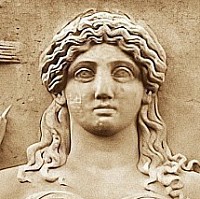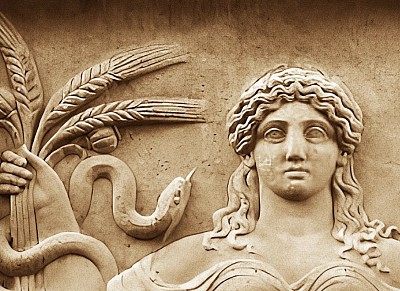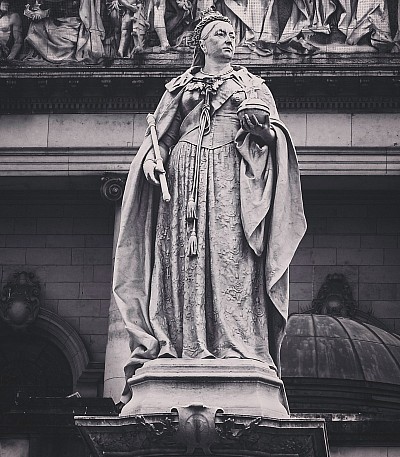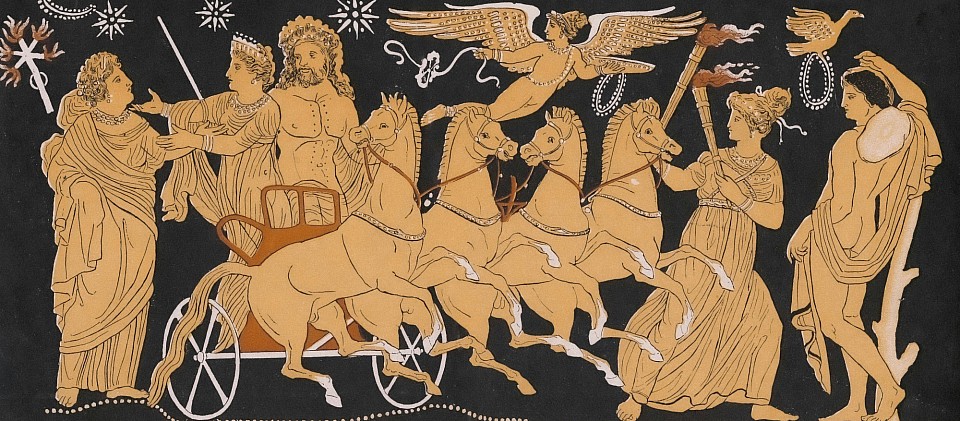Demeter Fans
Demeter: Olympian Goddess of Harvest, Agriculture, and Earth’s Fertility
Demeter is the goddess of grains and the earth’s fertility. Also known as Deo, she holds a vital place in Greek mythology as the second child of the Titans Rhea and Cronus. She is the sister of Hestia, Hera, Hades, Poseidon, and Zeus. Like most of her siblings, except Zeus, Demeter was swallowed by their father Cronus as a baby and later rescued by Zeus.
Demeter and Zeus became the parents of Persephone, the goddess of fertility. The Homeric Hymn to Demeter, one of the most famous ancient Greek hymns, tells the poignant story of Persephone’s abduction by Hades and Demeter’s relentless search for her. Hades, the king of the Underworld, desired Persephone as his wife and, with Zeus’s consent, kidnapped her while she was picking flowers in a field. Despite searching everywhere, Demeter could not find her daughter until she discovered that Hades had taken Persephone to the Underworld.
In her grief, Demeter ceased to care for the earth, causing a devastating famine where crops failed and mortals suffered greatly. To end this catastrophe, Zeus commanded Hades to release Persephone. However, because Persephone had eaten food from the Underworld, she was bound to spend part of the year there. As a result, Persephone divides her time between her mother and Hades, which explains the changing seasons—when Persephone is in the Underworld, Demeter mourns and refuses to let plants grow, leading to autumn and winter; when Persephone returns, Demeter rejoices and the earth becomes fertile again, bringing spring and summer.
Demeter's Essential Role and Symbolism in Ancient Greek Mythology
Demeter, the goddess of agriculture, held a vital and multifaceted role in ancient Greek mythology. Her influence extended far beyond the simple act of harvesting crops; she was intimately connected with the natural cycles of life and death, the changing seasons, and the delicate balance that sustains the earth. This profound significance was celebrated through the Eleusinian Mysteries, sacred religious rites conducted annually in honor of Demeter and her daughter Persephone. These mysteries were among the most revered ceremonies in ancient Greece, shrouded in secrecy and promising initiates profound spiritual insights into the cycle of life and rebirth.
Symbols and Iconography of Demeter
In ancient Greek art, Demeter is commonly portrayed as a mature, dignified woman, embodying the nurturing and sustaining qualities of the earth. She is often shown holding a torch, symbolizing her tireless search for her abducted daughter Persephone. Additionally, she carries a sheaf of wheat or a cornucopia—the horn of plenty—both powerful symbols of fertility, abundance, and the earth’s generous harvest. These emblems highlight her role as the provider of nourishment and the guardian of agricultural prosperity.
Demeter's Impact on Agriculture, Fertility, and the Advancement of Civilization
Demeter's influence extended far beyond the divine realm, profoundly shaping human civilization. She is credited with teaching humanity the essential skills of agriculture, including how to sow and cultivate grain, which laid the foundation for settled communities and the growth of societies. This knowledge was crucial for survival and prosperity, transforming the way humans interacted with the earth and ensuring a stable food supply.
Demeter as a Goddess of Fertility and Life
In addition to her agricultural role, Demeter was revered as a goddess of fertility, childbirth, and marriage. These aspects highlight her deep connection to the forces that sustain and nurture life. Her blessings were sought to ensure healthy offspring, fruitful marriages, and the continuation of family lines, underscoring her importance in both the natural and social orders. Festivals and rituals dedicated to Demeter often celebrated these themes, emphasizing her role in the cycle of life and human continuity.
The Broader Impact on Civilization
Through her teachings and divine influence, Demeter played a pivotal role in advancing human civilization. By fostering agricultural knowledge and promoting fertility, she helped establish the conditions necessary for population growth, social stability, and cultural development. Her legacy is reflected in the enduring agricultural practices and rituals that celebrate the earth’s bounty and the cycles of life. These traditions not only ensured food security but also fostered community cohesion and spiritual connection to the land, which remain influential in various cultures today.
Demeter’s Influence and Representation in Contemporary Culture and Media
Demeter's legacy continues to resonate strongly in modern culture, reflecting her timeless significance. Her story has been retold and reinterpreted across a wide range of media, including literature, film, visual arts, and theater, with each medium highlighting different facets of her myth. Often, she is invoked as a powerful symbol of motherly love, resilience, and the enduring strength of nature’s cycles.
In contemporary psychology, the Demeter-Persephone myth serves as a profound metaphor for exploring complex human emotions and experiences. Therapists and scholars use this myth to examine themes such as separation, loss, grief, and eventual reunion, illustrating the psychological processes involved in coping with change and trauma. This mythological framework helps individuals understand the dynamics of attachment and the transformative power of healing, offering valuable insights into personal growth and emotional resilience.
Moreover, Demeter’s influence extends into environmental and feminist discourses, where she is celebrated as an emblem of earth’s fertility and the nurturing aspects of femininity. Her story inspires movements that emphasize the importance of ecological stewardship and the reverence for natural cycles, reminding us of our interconnectedness with the environment and the need to protect and sustain our planet for future generations.
Demeter’s Lasting Legacy: The Timeless Influence of the Goddess of Harvest and Renewal
Demeter's story stands as a powerful testament to the enduring influence of ancient Greek mythology. Her narrative of loss, relentless search, and eventual reunion resonates deeply with universal human experiences, making her a relatable and compelling figure across cultures and generations. As the goddess of the harvest and agriculture, Demeter embodies the life-giving forces of the earth, symbolizing fertility, growth, and the vital cycles of nature that sustain all living beings.
Her myth reminds us of our intrinsic connection to the natural world and its rhythms, highlighting the importance of renewal and regeneration in both the environment and human life. Whether in the realm of mythology or reflected in everyday life, Demeter's presence continues to inspire and be felt, underscoring her enduring status as a symbol of life, growth, and the perpetual renewal of the earth’s bounty.




